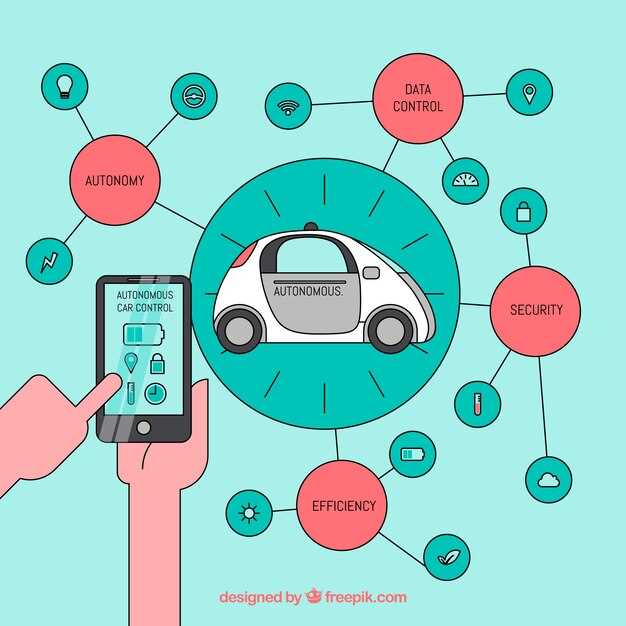
The advent of autonomous vehicles (AVs) represents a significant shift in transportation, intertwining technology with the law in unprecedented ways. As more individuals contemplate the ownership of driverless vehicles, a myriad of legal challenges emerges, touching upon liability, insurance, and regulatory frameworks. The convergence of advanced technology and existing legal structures calls for a thorough examination of how laws will adapt to accommodate this innovative mode of transportation.
One of the foremost concerns involves determining liability in the event of an accident. With traditional vehicles, the driver is often held accountable, but the question arises: who is responsible when a self-driving car makes a critical error? Manufacturers, software developers, and vehicle owners may all face potential legal ramifications, necessitating a comprehensive evaluation of current tort law and its implications for AVs. This shift in liability paradigms not only complicates litigation but also raises critical questions about consumer protections and manufacturer responsibilities.
Moreover, the integration of AV technology into the existing transportation infrastructure requires the adaptation of laws and regulations governing road usage, safety standards, and public policy. As municipalities and states begin to develop frameworks for regulating these vehicles, the lack of uniformity can lead to confusion and inconsistency across jurisdictions. This legal patchwork poses significant challenges for owners of driverless vehicles, affecting everything from vehicle registration to compliance with traffic laws.
Ultimately, the legalization of autonomous vehicles brings forth complex legal challenges that must be addressed to ensure a smooth transition to this new era of transportation. As the legal landscape evolves, it is essential for stakeholders to engage in ongoing dialogue to foster an environment conducive to innovation while protecting public safety and rights.
Liability Issues in Autonomous Vehicle Accidents

The advent of autonomous vehicles (AVs) presents a complex landscape of liability issues, especially in the context of accidents. The traditional model of driver liability is undergoing significant scrutiny, as the role of human operators diminishes. With AVs, liability may shift from drivers to manufacturers, software developers, or even third-party service providers, complicating the legal landscape.
Current regulations tend to focus on ensuring safety and accountability, but they often lag behind technological advancements. In the case of an accident involving an autonomous vehicle, questions arise about who is legally responsible: the vehicle owner, the manufacturer, or the software provider. As laws evolve, determining liability will require a clear understanding of the technology’s operation and failures.
Furthermore, the need for comprehensive regulations is critical to address these liability issues. Jurisdictions may implement varying laws that govern liability in AV accidents, resulting in potential inconsistencies across regions. This disparity underscores the necessity for harmonized legal standards that can provide clarity for all stakeholders involved.
Insurance companies are also adapting to the rise of AVs by exploring new policies that account for the different risk factors associated with autonomous technologies. Insurers must collaborate with policymakers to create frameworks that effectively distribute liability and provide adequate coverage for all parties affected by AV-related incidents.
Ultimately, the liability landscape for autonomous vehicles is in a state of flux. Ongoing dialogues among legislators, industry leaders, and legal experts will be essential in shaping robust frameworks that address these emerging challenges, ensuring safety and accountability in the era of self-driving technology.
Navigating State-Specific AV Regulations and Compliance

As the landscape of autonomous vehicles (AV) evolves, so do the regulatory frameworks governing their operation. Each state in the U.S. has the authority to craft its own laws regarding the use of AVs, leading to a patchwork of rules that vehicle owners must navigate.
Understanding state-specific AV regulations is crucial for ensuring compliance and avoiding legal pitfalls. Some states have established comprehensive laws addressing AV testing, deployment, and insurance requirements, while others are still in the early stages of development. Consequently, owners must familiarize themselves with both current laws and anticipated changes in each jurisdiction where they intend to operate their vehicles.
A key aspect of navigating these regulations involves staying informed about the varying requirements for licensing and registration of AVs. Some states may mandate additional paperwork or special permits for driverless vehicles, while others could have exemptions or simplified processes. Vehicle owners should consult their local Department of Motor Vehicles (DMV) or corresponding regulatory body for the most accurate and up-to-date information.
Moreover, liability and insurance frameworks vary widely across states. Determining how to protect oneself legally is imperative, especially when considering that AV technology introduces unique challenges regarding fault in accidents. Owners must ensure they have appropriate insurance coverage that aligns with state laws, which may also dictate how liability is assessed in accidents involving autonomous vehicles.
In addition to understanding regulatory compliance, vehicle owners must also keep the lines of communication open with local authorities and legislative bodies. Active engagement can help owners stay ahead of any upcoming legal changes and advocate for regulations that support responsible AV use while addressing safety and technological advancements.
Ultimately, successfully navigating state-specific AV regulations and ensuring compliance demands vigilance, adaptability, and a proactive approach. As AV technology continues to mature, so too will the laws governing it, necessitating ongoing education and awareness for vehicle owners aiming to harness the potential of autonomous driving safely and legally.
Insurance Considerations for Driverless Vehicle Owners
The emergence of driverless vehicles has ushered in a new landscape for car ownership and, consequently, insurance requirements. As autonomous technology evolves, insurance companies must adapt to the changing dynamics of risk associated with these vehicles. Unlike traditional vehicles, where the driver is primarily liable for accidents, the legal framework surrounding driverless cars raises questions about liability, necessitating a reevaluation of current insurance policies.
One of the primary considerations for driverless vehicle owners is the need to understand the applicable laws and regulations governing autonomous vehicles in their jurisdiction. These regulations can impact insurance coverage and liability in case of an accident. For instance, some areas may have specific mandates regarding the minimum coverage required for vehicles operating autonomously. Owners must ensure compliance with these regulations to avoid potential penalties.
Another critical factor is the allocation of liability in the event of an accident. In traditional scenarios, the driver is often held responsible; however, with driverless vehicles, this may shift to the manufacturer or software provider. Insurance policies will likely need to reflect this shift by incorporating elements that address manufacturer liability. As such, owners should consider purchasing comprehensive insurance that covers not only personal damage but also liability for software failures and other technology-related issues.
Moreover, driverless vehicle owners should remain aware of data privacy implications, as these vehicles collect vast amounts of data for navigation and safety purposes. Insurance companies may require access to this data for claims processing, which raises concerns about legal accountability and data protection. Consequently, owners must review the fine print of their insurance agreements to ensure their data rights are protected.
Lastly, it is advisable for owners to stay informed about advancements in autonomous technology and how they could affect their insurance policies. As regulations evolve alongside technology, insurance requirements may also change, making continuous education essential for driverless vehicle owners to maintain adequate coverage.


